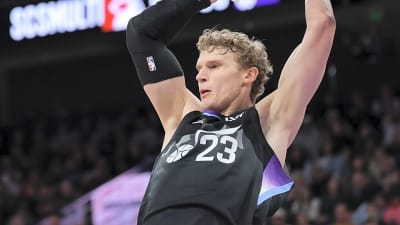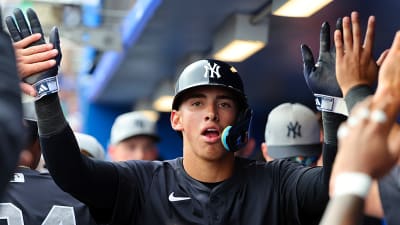
For Paul Nicholson, it wasn’t a tournament win, a big TV debut, or even his breakthrough in the PDC that changed everything — it was four words muttered in frustration after losing to a former world champion.
“I should have beaten him,” Nicholson recalled telling friends all the way back in 2007 after a narrow 4–2 defeat to Tony David at the Australian Masters on a recent episode of PDC referee Huw Ware's Tops and Tales podcast. “From then on, I didn’t care who I was playing.”
That mindset would become the bedrock of Nicholson’s career — the belief that he could stand toe-to-toe with anyone. But the journey to that point had been anything but straightforward.
Born a Geordie, Raised in Blyth
Nicholson is proud of his roots, even if people occasionally get them wrong. “I’m not from Sunderland — I am a Geordie,” he clarified with a laugh. Born in Newcastle “on the banks of the Tyne” at a hospital that no longer exists, he grew up in Cramlington before moving to Blyth in 1988.
Back then, Blyth was struggling. Jobs were scarce, and the port town was a far cry from the glamour of professional sport. Yet darts thrived in that environment. “In those kinds of areas, cheaper sports really came to the fore,” Nicholson explained. “Darts was huge, even though in ’88 the sport was going through a tough time with TV deals and BDO politics. I was heavily into it, as most people were in that neck of the woods.”
A Natural Thrower
The Nicholson household wasn’t one for regular pub trips, but darts still found its way in. His mother, pregnant with Paul at the time, once won a trophy herself. And even without a dartboard, young Nicholson improvised. “I’d throw things at bits of wood or make dartboards from cardboard boxes,” he said. “When I finally got my first proper board, it didn’t last long — I was on it constantly.”
He can’t remember his first three darts — “I was too young” — but a family photo exists of a two-year-old Nicholson, wearing only a jumper, mimicking Jocky Wilson’s throw in the garden.
By his teens, he was copying the likes of Eric Bristow, Bob Anderson, Richie Burnett, and Dennis Priestley. But he warns young players today not to follow his example. “I’d say be yourself,” he insisted. “These days, kids have qualified coaches and safe environments to learn proper fundamentals. We didn’t have that — I figured my throw out at 18 through years of trial and error.”
Breaking the Rules to Play
At school, Nicholson was a capable all-round sportsman — captaining football teams, playing cricket, badminton, and athletics. Darts took a back seat until he found a way to sneak it back in. “At 16, I broke the rules,” he admitted. “I’d go to the Coronation Club in Blyth and say I was 18, using a false name. I got six or seven matches in before they found out — small town, everyone knows everyone. But I learned I could hang with good players.”
His parents were unimpressed but supportive — promising to take him to the club themselves when he was old enough.
By 18, he was playing county darts for Northumberland and in the Super League for Blyth, partnering Gordon Dobey — father of future PDC star Chris — in pairs events.
Nicholson can forever call himself a PDC major winner
Dreams Derailed, Life Re-Routed
Nicholson had never envisioned darts as his main career. “I wanted to be a policeman,” he said. But a football accident at 18, in which he snapped his elbow back 30 degrees, meant he couldn’t bend his arm enough to pass the police physical. The RAF also turned him away despite him acing the exams.
Instead, he pursued an NVQ in retail, working in clothing, leisure, fitness, and later finance — but the competitive darts never stopped.
A Night Out That Changed Everything
The move that would transform Nicholson’s darts career began not with a sporting decision, but with a night out in Whitley Bay.
In 2004, while working for NatWest/RBS, he was looking into overseas work placements in the US. But that night, he met Linda — from Melbourne — and within six months they decided he’d move to Australia for a year. Within a week of landing, Nicholson was thrown into the local darts scene. “My father-in-law took me to meet players in Dandenong. I started in second division but was soon promoted, playing against state players like Dean Gibbs, Tommy Hyland, and Steve Duke Sr. My game improved massively.”
It was in Australia that Nicholson encountered Simon Whitlock, Graham Hunt, and Tony David — players who, at the time, were the faces of the sport Down Under. And it was there, after losing to David but feeling he should have won, that his mindset shifted from hopeful to fearless.
That confidence would take Nicholson all the way to televised titles, a reputation as one of the game’s most outspoken figures, and an enduring presence in the darts world. But at its heart lies the same belief forged on a different continent almost two decades ago — that on his day, Paul Nicholson could beat anybody.
More must-reads:
- Jordan Love's thumb surgery comes at inopportune time for Packers
- Bills RB James Cook to return to practice
- The 'NFL single-season reception leaders' quiz
Breaking News
Trending News
Customize Your Newsletter
 +
+
Get the latest news and rumors, customized to your favorite sports and teams. Emailed daily. Always free!








